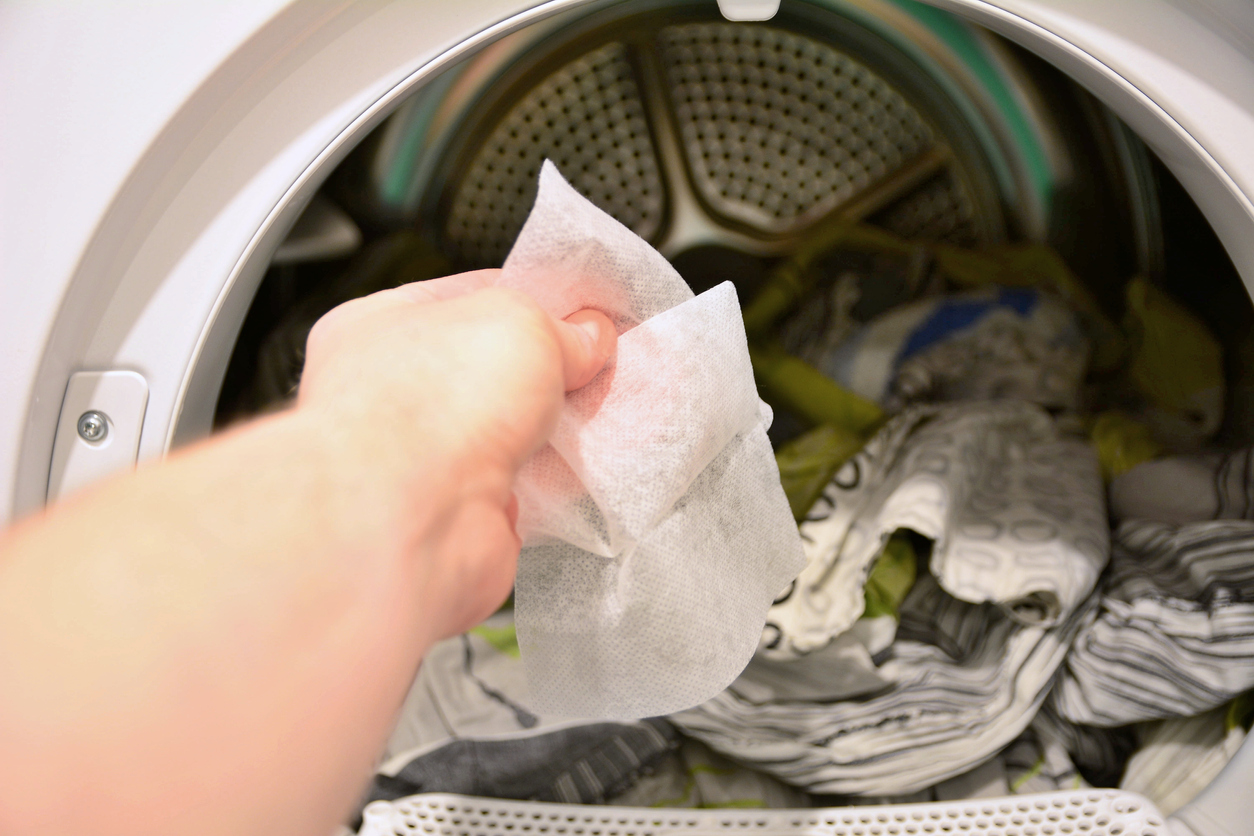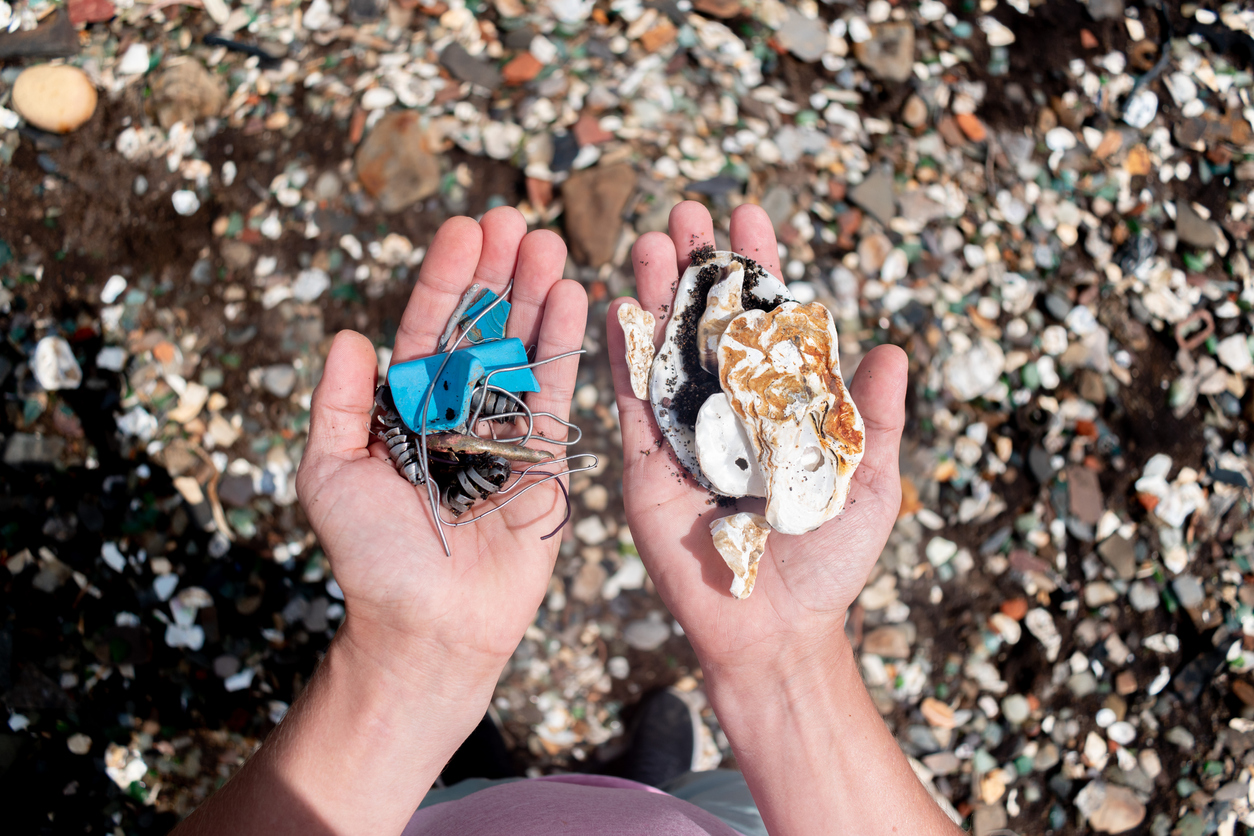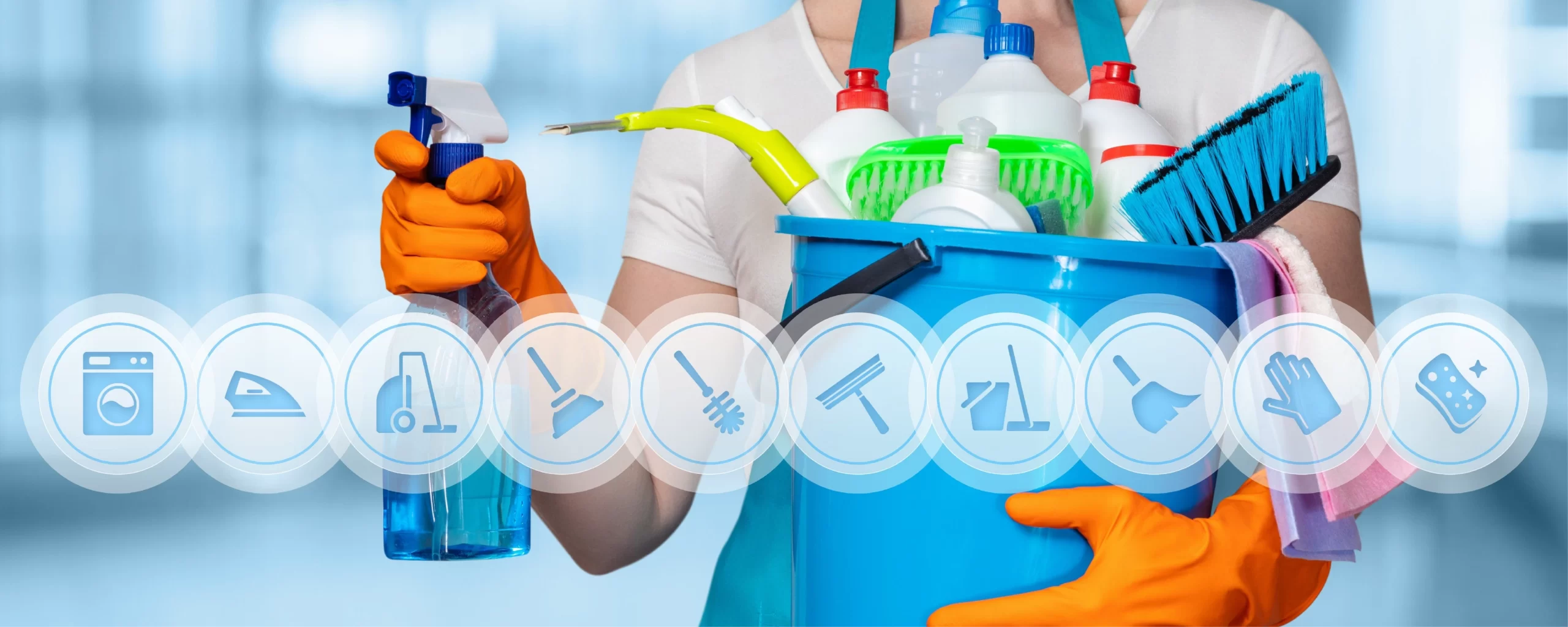Sustainable Biodegradable Laundry Detergent Sheets
The laundry and detergent sector is one of the booming industries worldwide. However, challenges like marine pollution and plastic dumping in ocean bodies are the most prominent bottlenecks this industry has been facing for an extended period. Around 11 million tons of plastic are dumped into the ocean every year. Laundry detergent bottles are one of the prime plastic generators. In the USA, around 1 billion plastic jugs of detergents are discarded annually. Laundry detergent sheets have been developed to tackle such never-ending problems.
A strip of 3 grams can substitute 40 grams of liquid detergent and give identical results. This leads to an overall reduction of 94% in carbon emissions. Every 32 strips account for one plastic jug of detergent, reducing plastic litter from landfills and oceans. Along with a high level of cleanliness, laundry sheets also contribute to the environment by eliminating major fillers and harmful microplastics often used in liquid and powdered detergents. In this article, we will provide information about laundry sheets, their benefits & their compositions with market analysis.
What Are Laundry Sheets?
Laundry sheets are simple laundry soaps integrated into a fibrous sheet that is dissolvable and biodegradable. They contain only the necessary cleaning ingredients without any plastic packaging or box. The cleaning results are up to the mark due to the presence of only key cleaning ingredients. The absence of additives and harsh chemicals helps eliminate soap residues and skin irritants on the clothes.
Why Laundry Sheets?
- Laundry detergent sheets or strips instead of powder/ liquid are becoming increasingly popular. Because they are lightweight and low-bulky, laundry sheet manufacturing does not harm the environment.

- They are easy to carry and take up minimal space while traveling, avoiding any possible spillover. The premeasured quantity, i.e., 1 sheet = 1 load, provides a precise and defined quantity, preventing any over- or under-dosage situations.
- The easy tearing of the strips can also help users adjust the quantity of detergent they want for their washing
- The primary substrate for encapsulating a large amount of detergent in laundry sheets is woven/non-woven fibers or polymers, such as polyvinyl alcohol, which are water-soluble and do not leave any residue after the washing process
- In laundry sheets, less harmful and nature-friendly ingredients replace harsh, dangerous, and non-biodegradable synthetic chemicals, such as phthalates, strong bleaches, phosphates, etc., and prevent the depletion of aquatic and soil ecosystems

- Using laundry detergent sheets has several advantages, including no or low waste generation due to their biodegradable components
- Additionally, they require very little water to dissolve or disintegrate, alleviating the water scarcity problem. Several big companies, including Unilever, P&G, and Henkel, and 40% of the global laundry detergent market, are leading the charge to reduce their water footprint.
Materials & Composition
Sheet Material: Sheet material plays a major and significant role in the performance of laundry sheets. It releases active cleaning ingredients upon disintegration and dissolution.
Various woven and non-woven components are used as sheet materials, such as vinyl polymers (polyvinyl alcohols, polyvinyl pyrrolidone, polyvinyl acetates), polysaccharides, polyesters, polyalkylene glycol, etc. Vinyl polymers, especially polyvinyl alcohol, are essential to use with or without modifying their structure.
Dissolution of the sheet material depends on essential factors, such as the degree of hydrolysis and polymerization. A film material with 75-95 mol% degree of hydrolysis and 100-3000 degrees of polymerization would be a proper candidate for sheet manufacturing.
Coconut-based surfactants are now widely used as a major ingredient in laundry sheets. Moreover, most sheets eliminate ingredients in traditional laundry detergents such as bleach, parabens, and formaldehyde. They do not contain dioxane, a likely carcinogen implicated in kidney and liver damage recently banned by the state of New York.
Other Biodegradable Ingredients
The laundry detergent sheet contains cleaning ingredients, including surfactants, builders, bleaching agents, etc. Surfactants are crucial ingredients because they occupy a large volume in the formulation. Most leading companies prefer surfactant blends for better and more efficient cleaning results. A blend of anionic and non-ionic surfactants improves cleaning properties and helps reduce the formation of suds during laundering.
Builders are used for water softening and to promote proper solubilization of surfactants. The most helpful builder is derived from phosphates, which, unfortunately, damage aquatic ecosystems by creating eutrophication. For a sustainable future, detergent companies work with phosphate alternatives like carbonate, zeolite, polycarboxylate, etc., for water softening.
Chlorine bleaches are the most effective but harm human health and the environment. Bleaching agents are useful ingredients in a detergent system to remove greasy and dusty stains. Substitutes like hydrogen peroxide, vinegar, oxy-bleaches, and chlorine-free bleaches are used as bleaching agents by companies such as Tru Earth.
Market Size and Analysis
The global laundry sheet market is expected to attain 3.2 billion USD by 2030 with a CAGR of 4.5%. Certain growth factors driving the market are as follows:
- The interest in biodegradable laundry sheets is increasing daily in the hospitality sector as a laundry detergent alternative for reducing the tediousness of laundry operations
- Practical benefits of using laundry sheets, which include better hygiene, odor control, and reduced fabric wear & tear, are creating a global awareness among consumers
- The growing popularity of eco-friendly products that are helping to reduce the environmental impact of laundering clothes
- Introduction of innovative products with new features, such as color-coded sheets to indicate specific loads or scent strips that provide a fresh smell after laundering clothes
Consolidated in nature, the market hasn’t reached the mass population due to low awareness, high cost, and low affordability. The increasing demand for eco-friendly, efficient, and cost-effective products creates opportunities for new entrants.
According to the global laundry sheet market data, North America and Europe have accounted for a significant market share. Growing demand for convenience, sustainability, and flexibility among consumers in the USA, Canada, and European countries is driving regional product demand.
The Asia Pacific accounts for a significant amount of the market share of the laundry care market. It significantly aids the growth of the global laundry detergent market, especially China, which accounts for nearly half of the sector and is the region’s primary market.
Detergent Companies
Leading Companies
- Henkel, founded in 1876, is a multinational chemical and consumer goods company with three globally operating business units: Adhesive Technologies, Beauty Care, and Laundry & Home Care. Purex Complete 3-1 is a laundry detergent sheet with cleaning, softening, and anti-static benefits. A French company, Swania International S.A.’s laundry & homecare business, was acquired by Henkel in 2021.
- LG Household & Health Care manages the cosmetics, household goods, and beverages business. Its product, Fresh Fiji Power Sheets, completely dissolves in water, contains safe ingredients like baking soda, coconut oils, etc., and is helpful for removing greasy stains.
- ECOS manufactures cleaning products for household applications like laundry, dishwashing, household cleaning, hand soap, etc., to safeguard the health and wellness of people, pets, and the planet. Launched in February 2020, ECOSNext is a lightweight, paper-thin square sheet used in laundry. It can be used with detergent powder or liquid for mess-free washing and stain removal. It is also easily recyclable and biodegradable.

Detergent Start-ups
- Tru Earth is a Canada-based start-up that started in 2018 to provide eco-friendly laundry products. Moreover, its Eco Strips contain no harmful ingredients like parabens or phosphates and dissolve in hot and cold water. In 2021, Tru Earth partnered with Ocean Wise to remove ocean plastics in California and Texas.
- SheetsTM Laundry Club focuses on producing biodegradable laundry sheets free from harsh chemicals and plastic materials. Additionally, the Club received pre-seed funding of 0.5 million USD from Mr. Daniel Lubetzky on November 23rd, 2021.
- Beco is an India-based startup developing tearable laundry sheets using cornstarch, bamboo, sugarcane, coconut, and other natural alternatives instead of single-use plastic. Recently, Beco raised $3 million in a series A round that included participation from Rukum Capital, Priyavrata Mafatlal, Better Capital, Prashant Pittie, Titan Capital, and others.

Conclusion
Society is currently concerned about sustainability and environmental impact. The need of the hour is laundry sheet innovation dependent on sustainable, green, eco-friendly ingredient utilization, which is suitable for biodegradability yet also responsible for cost-effectiveness, carbon footprint and greenhouse gas emission reduction, elimination of water scarcity, and use of renewable energies.
Let's Take the Conversation Forward
Reach out to Stellarix experts for tailored solutions to streamline your operations and achieve
measurable business excellence.



